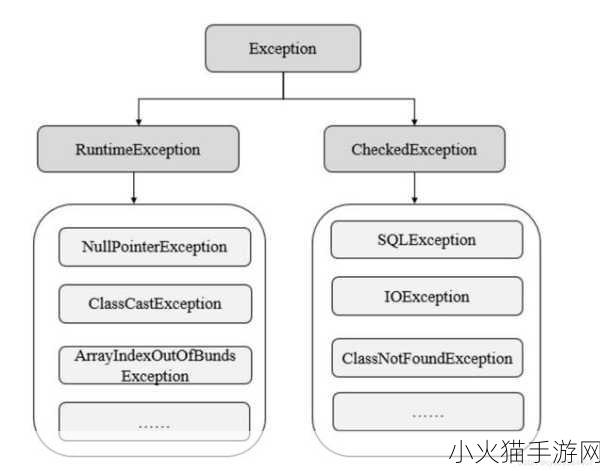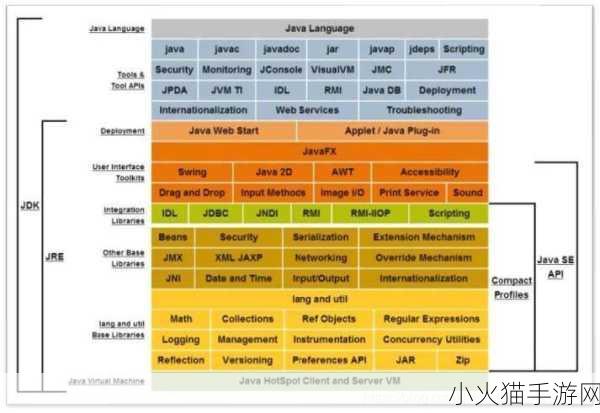JavaScript与Java的相似之处
编程语言种类繁多,各有其特色。无论是Web开发中广泛使用的JavaScript,还是后端领域中的强大代表Java,两者都在现代软件开发中扮演着重要角色。尽管这两种语言源于不同的背景,但它们之间存在许多相似性,这为学习者理解和掌握编程打下了基础。
首先,从语法结构来看,JavaScript与Java都有类似的基本构造,例如变量声明、控制流(如if-else和循环)、函数定义等。这使得熟悉其中一种语言的人可以较容易地上手另一种。例如,在两者中,都支持对象导向编程,通过类或原型来实现封装、继承和多态。在这方面,他们提供了一定程度上的一致性,使得程序员能够灵活切换工作环境而不感到过于陌生。

类型系统差异及影响
尽管二者都涉及数据类型,但是其处理方式却截然不同。 Java是一门静态类型语言,需要明确指定变量的数据类型,而JS则是动态类型,可以根据上下文自动推断。这一特征赋予了JS更大的灵活性,不过同样也带来了潜在的一些难题,比如运行时错误。因此,对于初学者来说,了解如何利用这些特点将显著提高代码质量。而对于经验丰富的开发人员,该知识点则能帮助他们做出明智选择,以便优化项目效率。
生态系统比较
Both languages have extensive ecosystems that provide a wealth of libraries and frameworks to enhance functionality. For instance, Java excels in enterprise applications with robust frameworks like Spring and Hibernate, which streamline backend development processes. On the other hand, JavaScript is powerfully represented by frameworks such as React and Angular for frontend web development. Understanding these frameworks can greatly improve productivity.

The package management systems also differ significantly: Node.js uses npm (Node Package Manager) for managing JS packages while Maven or Gradle serves this purpose in Java projects. Familiarity with these tools allows developers to efficiently manage dependencies and automate build processes across different environments.
Error handling mechanisms
Error handling practices diverge between the two languages. In Java, exceptions are checked at compile time; thus programmers must explicitly handle potential errors within their codebase using try-catch blocks or declare them thrown via method signatures. Conversely, JS employs both synchronous error-handling strategies through try-catch statements and asynchronous ones often managed via Promises or async/await syntax—an aspect essential for modern application development where operations may not complete immediately due to external resources being involved.
跨平台能力探讨
A comparison wouldn't be complete without mentioning cross-platform capabilities offered by each language's runtime environment. While JVM (Java Virtual Machine) enables running compiled bytecode on various operating systems seamlessly—which gives it an edge in developing platform-independent server-side solutions—Node.js provides similar benefits for Javascript apps allowing non-blocking I/O essentially making real-time applications more feasible regardless of user hardware specifications since they run directly from browser engines widely adopted today.
Simplified learning curve vs complexity challenge!
The dual nature brings forth unique challenges too! Newcomers might find themselves overwhelmed by comprehensive object-oriented principles ingrained deeply into JAVA but delightfully engage experimenting rapidly evolving features available readily throughout any webpage thanks mainly OO paradigms introduced early down upon scripting standards guiding design patterns crucial applicable whenever scalability comes play experience matters navigating complexities head-on versus aiming quicker results hastily appeared tempting option possible initially seemed attractive eventually facing hurdles attempting bridge gap bridging knowledge solidifying foundation based merely applying basic understanding then overlooking key aspects valuable learnings left behind neglectful shortcuts taken poorly impacting overall performance abilities later relying heavily thereafter basics ignorance realized only after encountering obstacles trying scale up beyond original ambitions set beforehand... #HotTopics: - Node.js vs Express framework trends - The future impact of TypeScript on front-end developments - Best practices adopting microservices architecture







